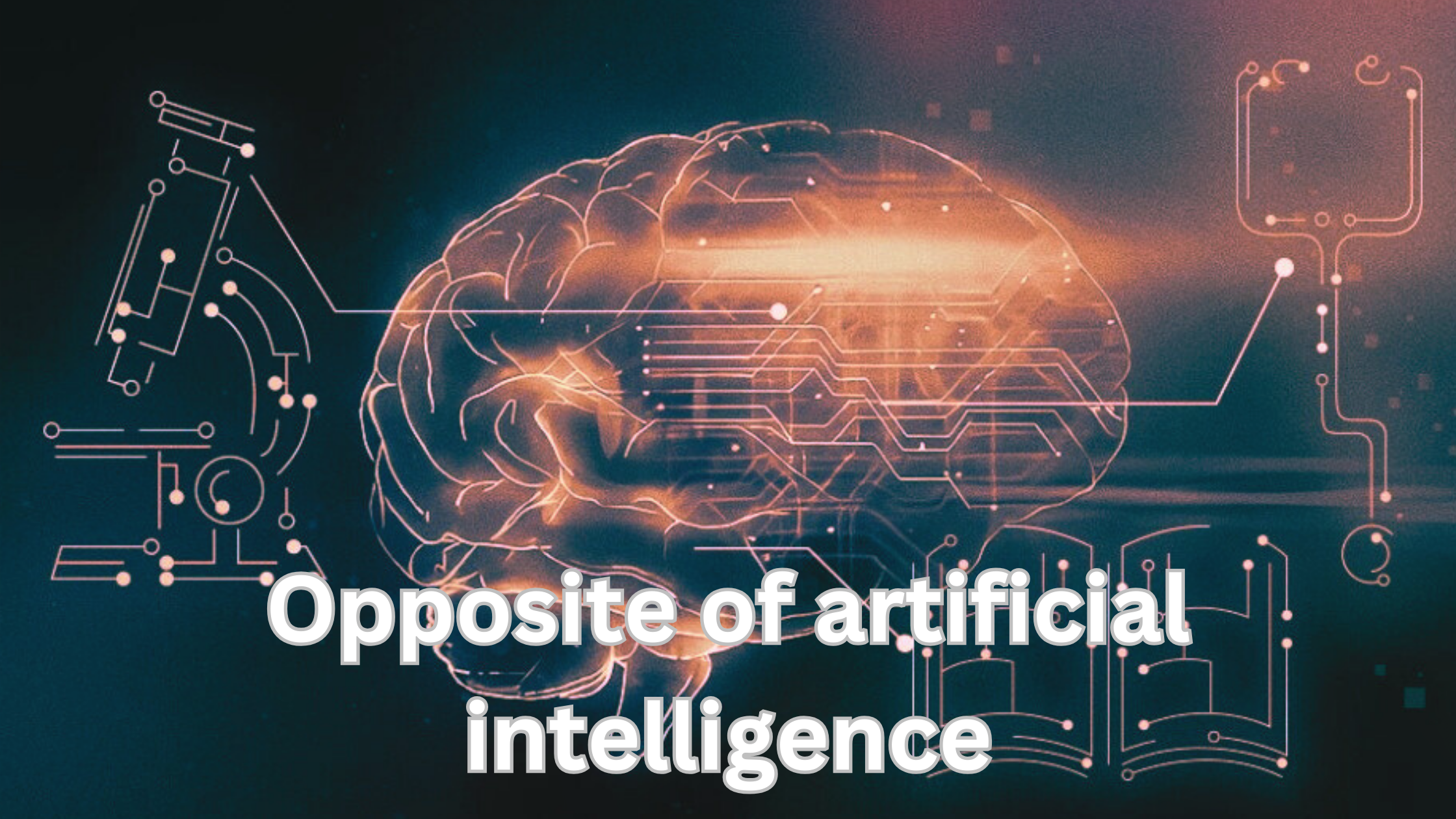
Considering the increasing influence of technology and automation, it is critical to understand the antithesis of artificial intelligence.While AI strives to replicate human-like cognition and decision-making processes, the counterpart to this is the innate intelligence possessed by humans. Discuss the fundamental nature of opposite of artificial intelligence and its relevance today.
Opposite of artificial intelligence
Human Intelligence: The Natural Counterpart
Human intelligence, unlike artificial intelligence, is inherent in beings and encompasses a broad spectrum of abilities. It is characterized by creativity, adaptability, emotional depth, and ethical judgment. Unlike AI, which operates based on algorithms and data, human intelligence draws from complex neural networks that facilitate nuanced thinking and understanding.
Emotional Intelligence: A Vital Aspect
In the human construct, emotional intelligence (EI) plays a fundamental role. The ability to discern, comprehend, and regulate one’s own emotions and those of others is an important aspect of empathy.Artificial intelligence does not display empathy, compassion, or social awareness, whereas human intelligence thrives on these characteristics. As a result, it is valuable in a wide variety of contexts, particularly in the context of interpersonal relationships and leadership.
Limitations and Flaws
Despite its strengths, human intelligence is not without its limitations. Human fallibility and error are inherent, leading to mistakes and biases in decision-making processes. Emotional biases and subjective interpretations can cloud judgment, highlighting the imperfections of human cognition.
Creativity and Imagination
A defining feature of human intelligence is creativity and imagination. Unlike artificial intelligence, which operates within predefined parameters, human creativity knows no bounds.The ability to generate original ideas, creative solutions, and artistic manifestations is a key component of creative thinking, an aspect that contributes to cultural wealth and innovation.
Ethical Considerations
Human intelligence brings with it a moral compass and ethical judgment, aspects largely absent in artificial intelligence. The ability to discern right from wrong, along with a sense of accountability and responsibility, shapes human actions and decisions, highlighting the ethical dimension of intelligence.
Social Intelligence
In order to navigate the complexities and interactions of social life, social intelligence is an essential component of human intelligence. It involves skills such as empathy, communication, and conflict resolution, fostering meaningful connections and cooperation among individuals.
Role of Intuition
Intuition, often regarded as a mysterious aspect of human intelligence, plays a significant role in decision-making processes. Unlike artificial intelligence, which relies solely on data-driven analysis, human intuition encompasses gut instincts and unconscious processing, offering insights that go beyond rationality.
Adaptability and Learning
The characteristic of human intelligence is its propensity for continuous learning and adaptability.
Unlike artificial intelligence, which may stagnate without updates or new data, humans possess the capacity to adapt to changing environments and circumstances. Continuous learning and growth are inherent aspects of human intelligence, driving personal and collective evolution.
Conclusion
In conclusion, human intelligence stands as the natural counterpart to artificial intelligence, offering unique strengths and capabilities. From emotional intelligence to creativity and ethical judgment, human intelligence encompasses a rich tapestry of abilities that complement and enhance technological advancements. Embracing and nurturing human intelligence is essential for navigating the complexities of the modern world, ensuring a harmonious balance between technological progress and human values.
FAQs
Is human intelligence superior to artificial intelligence?
Artificial intelligence and human intelligence excel in distinct domains. Although artificial intelligence may perform better than humans. There’s nothing like human intelligence when it comes to profundity, ingenuity, and ethical discernment.
Can human intelligence be replicated by artificial means?
While artificial intelligence can simulate aspects of human intelligence, such as pattern recognition and problem-solving, the nuanced complexities of human cognition, emotions, and consciousness are yet to be fully replicated.
How can we enhance human intelligence?
Enhancing human intelligence involves fostering skills such as critical thinking, creativity, emotional intelligence, and continuous learning. Engaging in diverse experiences and seeking knowledge from various sources can also contribute to cognitive development.
What role does education play in nurturing human intelligence?
Education plays a vital role in nurturing human intelligence by providing opportunities for learning, critical thinking, and personal growth. In an ever-changing global environment, it provides individuals with the necessary knowledge and skills to succeed.
How can we strike a balance between artificial intelligence and human intelligence?
Coexistence of artificial intelligence and human intelligence requires conscientious integration of technology while maintaining human characteristics. Emphasizing ethical considerations, promoting human-centric innovation, and fostering interdisciplinary collaboration are essential steps in achieving this balance.




